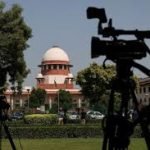This judgment addresses contempt petitions filed against the Punjab National Bank (formerly Nedungadi Bank Ltd.) for alleged non-compliance with a Supreme Court order regarding a former employee’s outstanding dues.
Basic Facts
A.K. Jayaprakash, a Manager at Nedungadi Bank Ltd., was dismissed in 1985 for alleged irregularities. The Deputy Commissioner of Labour, Tirunelveli, set aside the dismissal and reinstated him.
The Bank challenged this decision, leading to a remand and subsequent upholding of the reinstatement by the Madras High Court, which limited back wages to 60%. During these proceedings, Nedungadi Bank merged with Punjab National Bank.
Supreme Court Order (2018): The Punjab National Bank’s appeals (Civil Appeal Nos. 6732-6733 of 2009) were dismissed by the Supreme Court on January 17, 2018, with a clear direction to pay the “outstanding amount” within three months.
Non-compliance & Contempt Petitions: The Bank failed to comply within the stipulated three months. A.K. Jayaprakash filed contempt petitions, claiming back wages, pension, and provident funds.
Partial Payment & Petitioner’s Demise: While the contempt petitions were pending, A.K. Jayaprakash passed away, and his legal representatives were brought on record. The Bank disbursed arrears of salary (60% back wages), gratuity, and provident fund dues between March and June 2019, well beyond the three-month deadline. However, the claim for pensionary benefits was rejected by the Bank.
Bank’s Justification for Delay: The Bank explained the delay was due to administrative difficulties arising from the amalgamation of Nedungadi Bank Ltd. with Punjab National Bank and the non-availability of legacy records.
Law Involved
Contempt of Courts Act, 1971: The jurisdiction of the Court under this Act was invoked to determine if the delayed compliance constituted wilful disobedience.
Principles of Contempt Jurisdiction:
Contempt jurisdiction is intended to uphold the majesty of law, not to settle personal grievances (Ashok Paper Kamgar Union v. Dharam Godha and Others).
For civil contempt, the breach must be deliberate and intentional (Rama Narang v. Ramesh Narang and Another).
Contempt proceedings cannot be used to assert new claims or seek substantive reliefs that were neither raised nor granted earlier (Jhareswar Prasad Paul and Another v. Tarak Nath Ganguly and Others).
Reasoning
No Wilful Disobedience: The Court found no dispute that the payment was not made within the three-month period. However, it concluded that the material on record did not demonstrate “wilful or contumacious intent” on the part of the Bank. The explanation of administrative hurdles post-merger and difficulty retrieving old records was accepted, noting that the element of mens rea, essential for civil contempt, could not be inferred solely from the delay.
Pension Claim Not Adjudicated: The Court determined that no relief for pension was ever sought or adjudicated in the initial Civil Appeals or earlier proceedings. Therefore, the contempt jurisdiction could not be used as a forum to assert a new claim for pensionary benefits.
Compensation for Protracted Delay: Despite discharging the contempt rule, the Court acknowledged the “prolonged non-disbursal of funds” for over a decade to the Petitioner, who was dismissed in 1985 and had secured favorable orders as early as 2004, superannuating around 2006. Given the long-pending litigation since the 1980s and the delay, a reasonable lump sum payment was warranted to compensate for the protracted delay and bring a “quietus to future litigation”.
Holding
The prayer for initiation of contempt proceedings was disposed of, and the rule issued stood discharged qua the Respondents for now.
The claim for pensionary benefits was rejected as it did not form part of the Court’s previous directions.
The respondent-Bank was directed to pay a sum of Rs. 3,00,000/- (Rupees Three Lakhs only) to Smt. Vimala Prakash (the widow of the deceased Petitioner) or other legal representatives within eight weeks from the date of the judgment (August 19, 2025) .
Interest at 8% per annum would be payable if the payment is not made within the stipulated eight weeks.
No further proceedings would be entertained in relation to the present subject matter upon compliance with the compensation direction.
A.K. JAYAPRAKASH (DEAD) THROUGH LRs V. S.S. MALLIKARJUNA RAO AND ANOTHER
Supreme Court: 2025 INSC 1003 (DoJ 19-08-2025)
2025 INSC 1003 Download Supreme Court File






